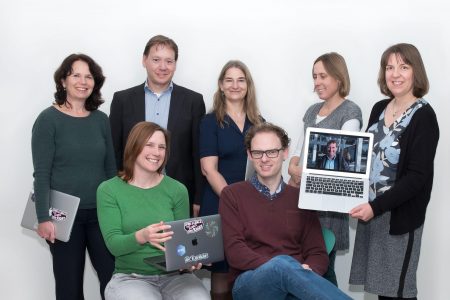Updated Data Management Regulations for Leiden University
Seven years have passed since Leiden University adopted its first data management regulations. In 2016, data management was still a new area and awareness raising was an important goal for the regulations. There were little services and support available and therefore it was agreed that there would be an implementation period of three years. Many activities have been deployed since then. Faculties and institutes are in the process of writing data management protocols. They have developed programs to train their new PhD students in data management skills. Some have set up their own Dataverse and ask to deposit publication packages. The Centre for Digital Scholarship expanded its data management team and delivered many workshops, advised on data management plans, and contributed to innovative projects both in and outside the university. Many researchers submitted data management plans to their funders. All in all, an ever-growing part of the research data produced by Leiden University is now available, for reproducibility reasons and for follow-up research.
The data management domain did not stand still in the meantime. The FAIR principles were adopted worldwide to ensure that data is made Findable, Accessible, Interoperable and Reusable. GDPR came into place to protect participants’ personal data and a new code of conduct for research integrity was established. Funders, the government, and institutions adopted Open Science programs, and open data became the standard (‘as open as possible, as closed as necessary). And thus, it was time to update the regulations and in December 2021 the new regulations were signed by the Executive Board.
Data Protocols and Data Stewards
The regulations provide a general, university-wide, framework but details need to be elaborated at the level of faculties and institutes to take into account discipline specific characteristics of research data and the way they are handled. Therefore, at the beginning of 2022 faculty boards have received a letter from Executive Board with the updated regulations and an invitation to develop faculty-specific data protocols. A university template based on the regulations is provided to help draft the protocols and align protocols across faculties. Topics that need to be developed it the data protocol are:
- Type of research data typical for the discipline and existing guidelines for these
- Data related workflows (ethics, GDPR, data packages)
- Research facilities (labs, instruments etc.) and their guidelines
- How to do FAIR: how data should be kept during the research, known disciplinary metadata standards, preferred repositories, licenses etc.
- How to deal with data collected by students
- How the faculty / institute keeps track of data
- Procedures for writing / updating and monitoring DMP’s
- Support at faculty / institutional level
In the course of 2022, faculties have appointed data stewards to deliver first line support close at hand of their researchers. Also, one of their tasks is to update or develop the data protocol for their faculty or institute. To streamline the process, all data stewards held regular meetings between October 2022 and March 2023, joined by RDM experts from the Centre for Digital Scholarship, as well as by policy advisors from Strategic and Academic Affairs, and ICT experts from the ISSC. The meetings were facilitated with support from the Central Administration. As a result, for each faculty a draft data protocol was developed, which are now being reviewed by all relevant parties and people within the faculties.
Although policy alone will not change existing research practices, we expect that tailormade data protocols will really help researchers who want to ensure that their research data will live happily ever after.






